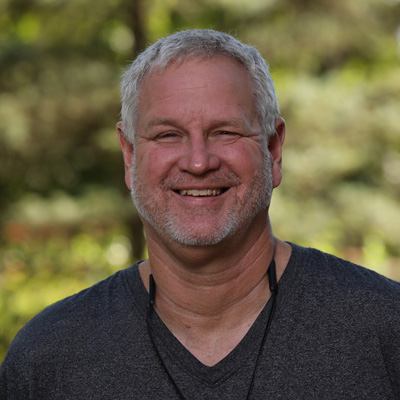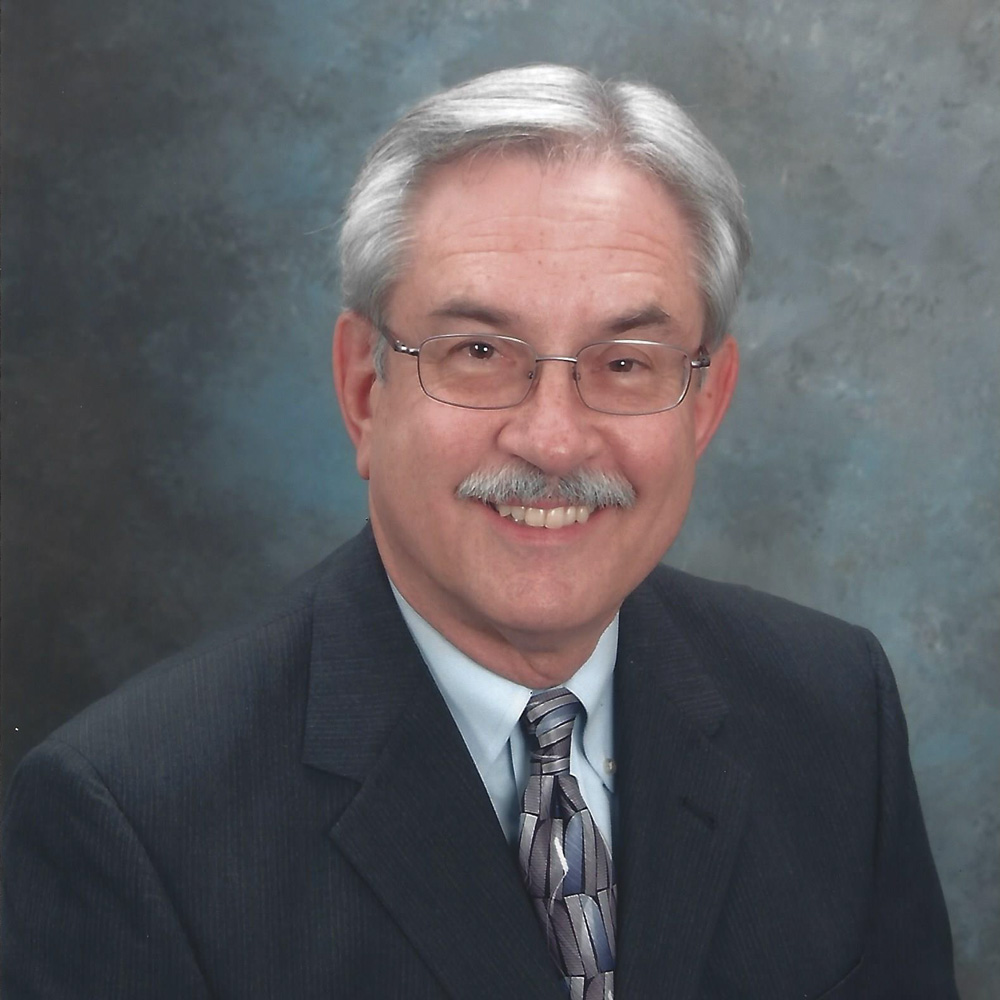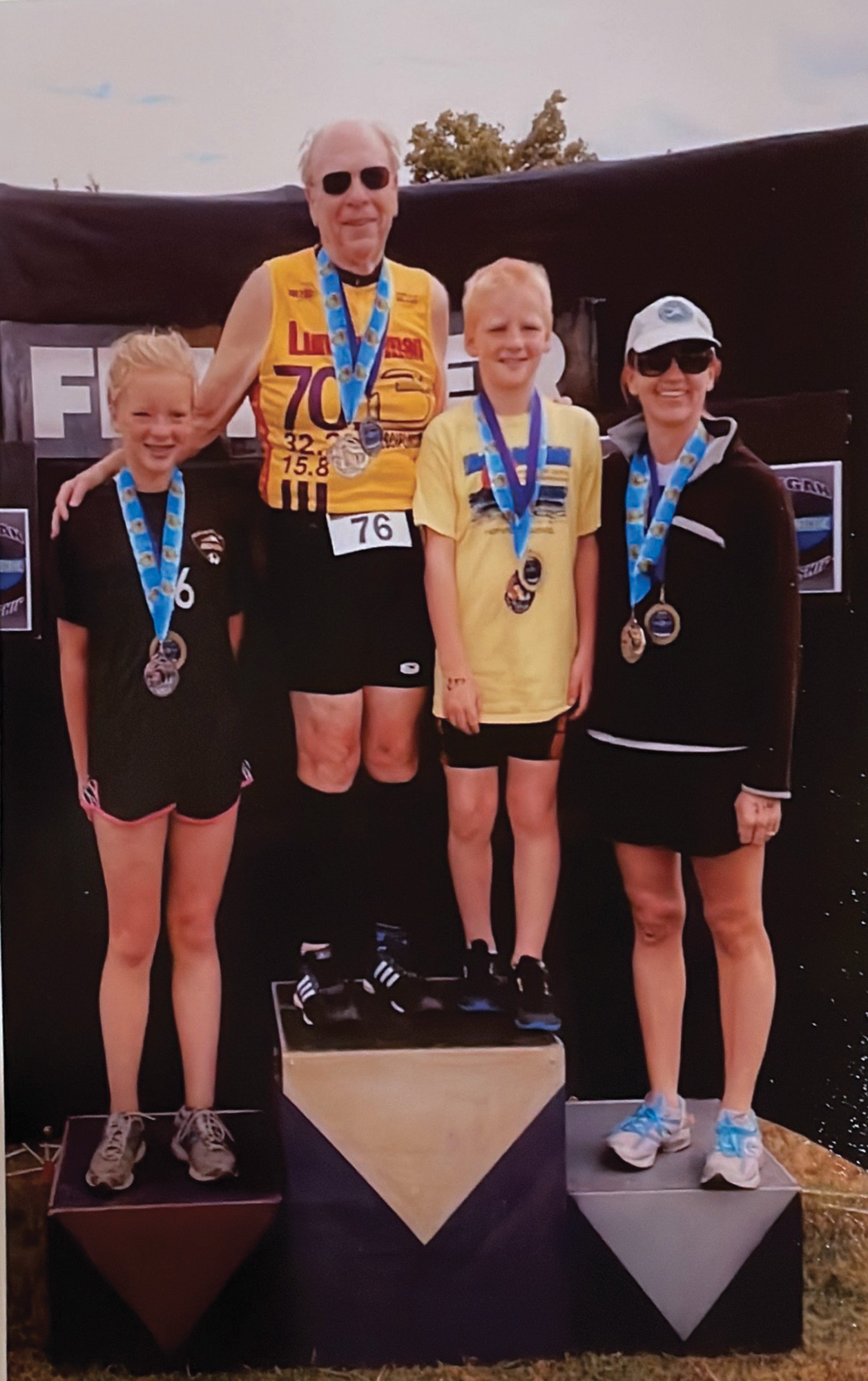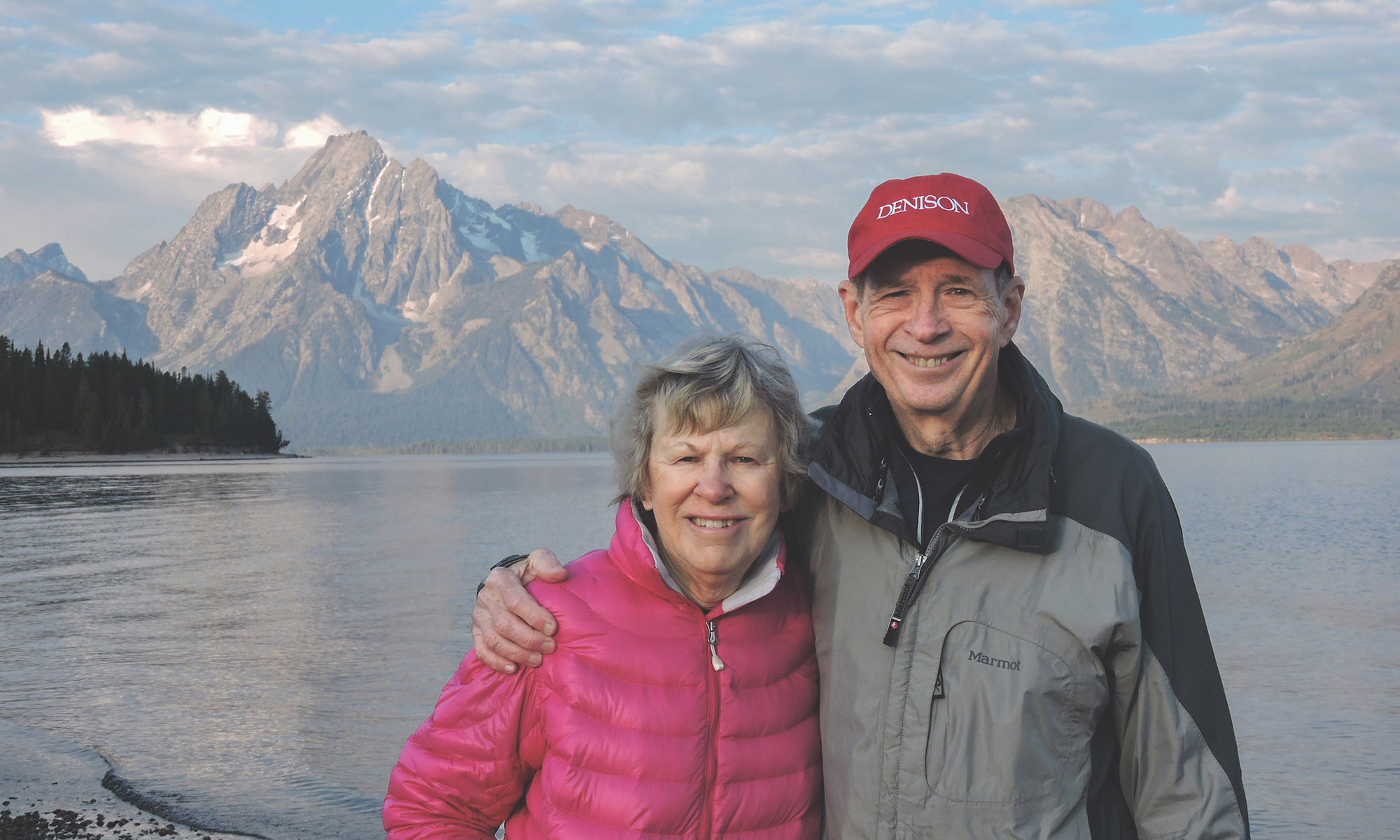When he decided to retire after 45 years practicing medicine, Jack Treharne ’70 knew there were things he wouldn’t miss.
“I was up to here with the rat race of insurance and corporate micromanagement,” he said. “But I still missed patient contact.”
Then Covid hit. Treharne, of Winter Springs, Florida, reached out to a friend who led the local county emergency services. The friend hooked him up with a local health organization gearing up for the pandemic.
“So I signed on,” he said. “For 18 months, we treated patients with active Covid.”
Treharne loved biology. After Denison, he went on to become a teaching assistant in the cell biology department at the University of Kentucky.
“I soon became aware, though, that research in cell biology was too restrictive for me, and that I needed something broader,” he said. “I wanted to help people, and research on the tobacco mosaic virus was not my thing.”
He spent nine years in the U.S. Navy, service that included time at sea on the USS Sellers and USS Dewey, and a three-year family practice residency at the Naval Regional Medical Center in Charleston, South Carolina.
“I chose family practice because I love kids but still enjoy interacting with adults,” he said.
Once the Covid pandemic eased, his “retirement” job ended. Now he teaches religious education at his local parish, St. Stephen Catholic Community, and belongs to the Central Florida Railroad Modelers.
“Denison gave me an appreciation for broader focus, both historical and current, both scientific and humanities,” he said. “I am greatly appreciative of the Denison Singers, who with their reunion in June of this year helped me get reconnected. Until that time, I had not really realized what the Denison experience meant to me.”
Robert Stocker ’65 credits Denison for helping him develop the writing and public speaking skills he’s used for five decades as an attorney.
But nothing from his liberal arts education in the 1960s prepared him for the occupational hazards of logging so many hours behind a desk.
“There’s an old saying that law is a jealous mistress,” Stocker said. “It’s a sedentary lifestyle, and over the years I gained a lot of weight.”
By 1978, Stocker had put on 100 pounds. At 250 pounds, he couldn’t run more than 100 yards without gasping for air.
Stocker always had a “can do attitude” on The Hill when it came to academics. A father of four daughters, he knew he needed to apply this spirit to physical fitness. He changed his diet, subscribed to running magazines, and devoted himself to losing weight.
The result is a body and a life transformed. Stocker, always a decent swimmer, took up running and cycling. Those three ingredients have made him a competitive triathlete over the past 30 years.
At age 80, Stocker is fit and training for the 2024 World Triathlon Championships in Malaga, Spain. In 2023, he won the Michigan Senior Olympics triathlon for his age group (80-84), while posting a top-four and a top-six finish in two prestigious national events.
“I wasn’t an athlete at Denison,” Stocker said. “So if you would have told me back then that I’d be competing in these kinds of events in my 80s, I would have told you that you’re crazy.”
Stocker speaks so highly of Denison that his daughter, Erin Stocker Mayer ’95, decided to attend. She and her two children also inherited Stocker’s love of physical fitness. In 2018, all four family members posted top three finishes for their age group in a Detroit triathlon.
Stocker shows no signs of yielding to age. He continues his private business law practice working closely with the gaming industry. He’s also set audacious training goals.
“As a member of the Marine Corps Marathon Runners Club,” he said, “my goal is to continue running every October in the Marine Corps Marathon through the celebration of my 100th birthday.”
James L. Quarles III ’68 was near the end of a full career in law when a longtime friend asked for help with a case. The friend was Robert S. Mueller III. The case was the Trump-Russia investigation.
By this point in his professional life, Quarles was no stranger to high-profile cases. He had handled complex intellectual property cases for clients such as Intel and Apple. He had worked with Mueller before, serving as settlement counsel in the Volkswagen diesel emissions case and investigating the NFL’s handling of the Ray Rice domestic violence incident.
And through his connections at Harvard Law School — his constitutional law professor was none other than Archibald Cox — Quarles had been tapped as a young lawyer to assist with a little investigation known as Watergate. Cox, the special prosecutor in the investigation, hired Quarles and a classmate onto the team.
“That wasn’t such an easy time in our lives,” his wife reminded him when Mueller came calling in 2017. “Are you sure you want to do this again?”
Sharon Taft Quarles ’70 had a point. Not noted in the history books: the infamous “Saturday Night Massacre” that cost Cox his job and highlighted the growing desperation of a cornered President Richard Nixon occurred about three weeks before the due date of the couple’s first child.
So there was reason to pause and think hard about Mueller’s request, coming as it did at a time when Quarles could have been happily retired, spending time with his grandchildren in Oregon and Costa Rica, or chasing fish with a fly rod.
But Quarles loves the law. He took the job.
While steering clear of the politics, Quarles readily drew one parallel between the Watergate investigation and the Mueller probe decades later.
“Both were led by extraordinarily principled human beings,” he said. “I never saw either of them cut a corner.”
Quarles worked on the Watergate case until 1975, when he joined the Boston firm of Hale and Dorr and worked closely for years with Nixon’s lawyer, James D. St. Clair.
“Neither of us thought it was all that unusual,” he said. “And we never said a word about Watergate to each other.”
That firm eventually merged with the firm of a law school classmate and Watergate colleague to form WilmerHale. Quarles’ passion was trial work, particularly those intellectual property cases for big tech companies.
“Not only do those cases go to trial more often, but you’re working with incredibly bright people who are doing incredibly interesting things, and they’re paying you for it,” he said.
He relished the challenge major cases presented.
“I’ve always enjoyed things where they keep score, and they definitely keep score in the law,” Quarles said. “I always say that winning lasts a week but a loss lasts a lifetime. I can tell you every case I’ve lost.”
These days, though, he’s happy being a grandfather of four, co-teaching a seminar at University of Virginia Law School, serving on a mediation panel for the federal courts in the District of Columbia, and continuing to chase fish.
And if a special government prosecutor came calling a third time?
“They’d better be pretty persuasive to Sharon,” he said.
Cole Brown ’68: Maybe you remember Dad splashing on some Brut cologne or Skin Bracer aftershave. Perhaps you recall the Aqua Net hairspray on the bathroom counter or the Sunlight dish detergent under your kitchen sink.
“Little did you know that when you purchased one of these brands — or one of our holiday gift sets — that I was behind the curtain pulling the strings,” Brown said.
Brown spent his career in brand management, which he found to be a perfect blend of his organizational skills and creativity.
“I can truly say that my life is fundamentally different because of Denison, and particularly Dr. Sam Schaff,” he said. “I was 17 and immature when I entered Denison, and not unsurprisingly found myself in grade trouble very quickly. The university pulled out all of the stops, got me grounded, and helped me realize my potential.”
After Denison, he earned his MBA at Columbia University. Shortly after he met his wife, Sue, at Stratton Mountain, Vermont. Avid skiers, they bought a home there in 1975.
The couple spent most of their working life in Westchester County, New York, about 30 miles north of the city. Brown loved his work but realized he could do without the excess baggage — brutal commutes, long hours, stress, and extensive travel for business.
He and Sue, who was an elementary school teacher, set their sights on retiring early. “Thankfully,” he said, “I achieved my goal with my health and sanity intact.”
They split their time between Vermont and Pawleys Island, South Carolina. Brown worked for about five years as a guide at Stratton, leading skiers on tours of the mountain. He and Sue traveled the world, visiting six of the seven continents.
More recent developments have underscored for him that early retirement was the right decision. Sue’s health now keeps them closer to home, and at 77, Brown is settling into a new role as caregiver.
“We miss traveling, especially to Denison, but we still try to make every day special,” he said.
Jane Demos Coop ’73 races through her biography in a manner that suggests she’d rather be doing than talking about what she’s done.
Her delivery is rapid-fire, matter-of-fact, and self-deprecating. Take her summary of her academic career at Denison, for instance: “Tried to double major in biology and art. Bugs ate my research plants. Went with art.”
After Denison, Coop was uncertain about a career. She thought she might marry and have kids in a few years. “I didn’t want to ignore my kids, so medical school was out,” she said. Instead, she earned an MBA at Vanderbilt University, took IBM’s test, and did well enough that the company sent her to computer school for a year.
That wasn’t her bag, so she decided on medical school after all, at the University of Tennessee. She finished her pathology residency, got married, and ran a huge Veterans Affairs lab in Memphis.
“Two gas chromatography-mass spectrometers!” she said. “Fun!”
Then came some major life changes.
“Got my boards in pathology, got a divorce, was diagnosed with macular degeneration, and was told I was going blind by 50,” she said. “So I had to do a lot of living fast.”
Every vacation since, Coop has been part of a paleontology crew. Over 15 years, she’s had a hand in discoveries of whole or partial skeletons of Triceratops, Allosaurus, and Tyrannosaurus rex.
“I even got to help prep a T.rex,” she said. “Tedious, but fun.”
She has amassed an impressive collection of fossils that she plans to leave to a museum. She’s also taught reading to grammar school children and displayed her dinosaur fossils and minerals to school groups. And she does it all with clear vision — after “much medical intervention,” she said, her eyesight is just fine, thank you very much.
“Retirement is my favorite,” Coop said. “It’s like recess. I’m curious about too many things, so guess that’s why I stay so busy.”







